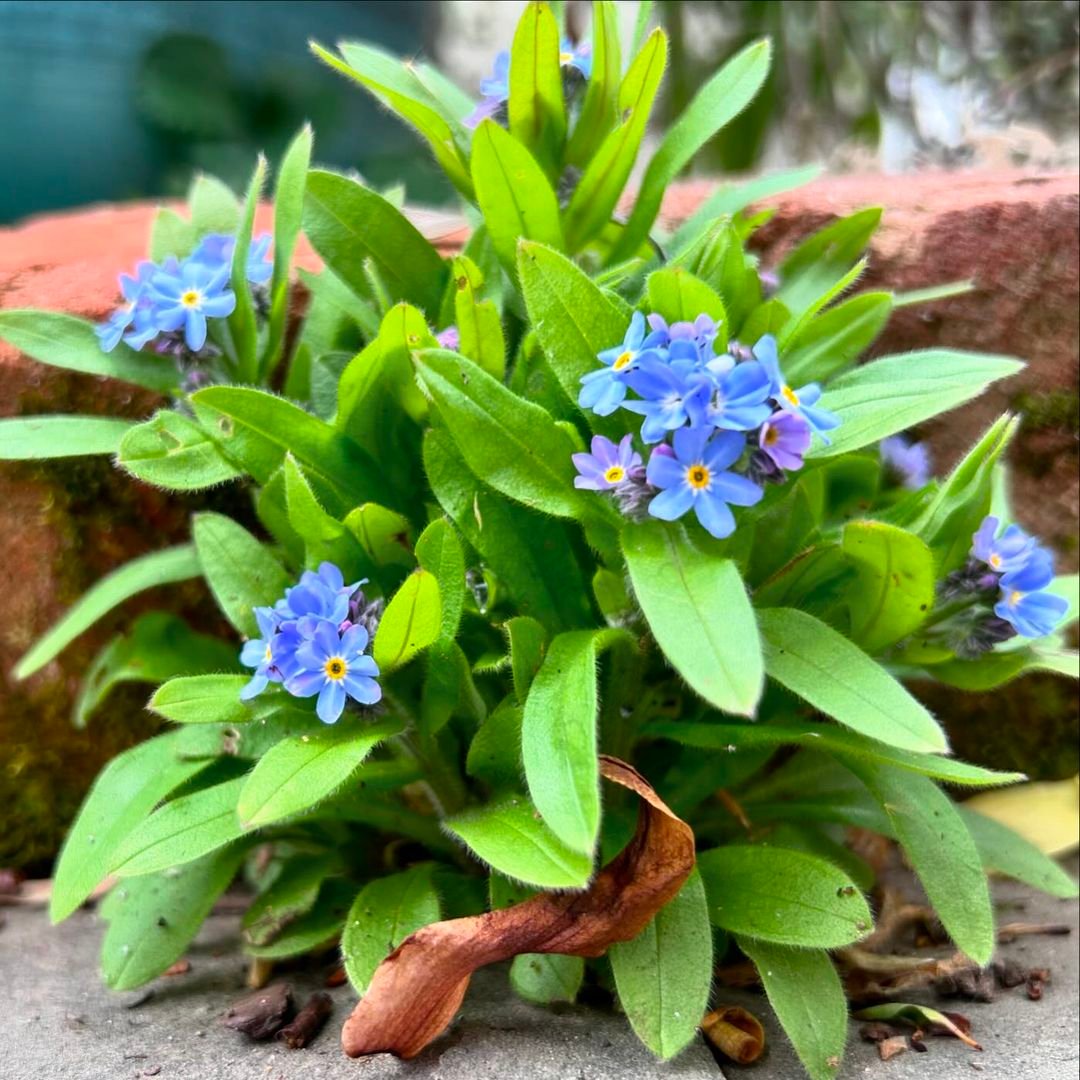Forget me nots are beautiful blue flowers that bloom in spring and are often used as ground cover in gardens and containers. In this guide, we’ll provide you with detailed information on how to cultivate and care for these flowers, aiming to create a comprehensive resource that surpasses existing content on Google.

Overview of Forget-Me-Not
Forget-me-not, belonging to the Boraginaceae family, boasts a botanical name of Myosotis sylvatica. As a perennial, it matures to a height and width of 6-12 inches and graces the garden with its presence in USDA hardiness zones 3-8. The spring-blooming wonder exhibits a captivating display of blue, pink, or white flowers, each less than an inch wide, characterized by five rounded petals and a central eye in white or yellow. Buds of pink hue introduce a delightful two-tone effect.
Plant Attributes
Here’s a short information chart for Forget-Me-Nots flowers:
Table
| Botanical Name | Myosotis scorpioides |
|---|---|
| Plant Type | Flower |
| Sun Exposure | Part Sun |
| Soil pH | Neutral |
| Bloom Time | Spring, Summer |
| Flower Color | Blue, Pink, White |
| Hardiness Zone | 5, 6, 7, 8, 9, 10 |
| Special Features | Attracts Butterflies, Attracts Songbirds |
Forget-Me-Not Care

Light
Forget-me-nots thrive in morning light and afternoon shade or light shade.
Soil
Utilize well-drained, moist soil rich in organic matter, mimicking woodland conditions.
Water
This resilient plant typically does not require supplemental watering.
Temperature and Humidity
Thriving in cool seasons, forget-me-nots may experience some dieback in summer heat.
Fertilize
No need for fertilization.
Types of Forget-Me-Nots
Several cultivars of Myosotis sylvatica enrich the horticultural landscape:
- Victoria Series: Compact type with blue, rose, or white flowers.
- Sylva Series: Compact with blue, rose, and white flowers.
- Blue Basket: Taller with a deeper blue.
- Pompadour: Compact and rose pink.
- Snowball: White flowers.
- Ultramarine: Dark blue to lavender flowers.
Other Myosotis Species
“True forget-me-nots (Myosotis scorpioides) are beautiful blue flowers that prefer wetter environments and grow near ponds or streams. They bloom in summer and offer a unique appeal in specific conditions, although they are not as cold hardy as Myosotis sylvatica.”
Pruning

To prevent forget me nots from spreading uncontrollably, it’s recommended to deadhead or prune the flowering stalks after they bloom in spring. This practice, ideally conducted before summer, ensures controlled propagation.
Propagation
Forget me not plants easily propagate through division. Optimal timing involves post-spring bloom, after deadheading. Loosen the soil around the plant, lift, divide with care, and replant for robust growth.
How to Grow Forget-Me-Not from Seed
Growing forget me nots from seed is a straightforward process, whether collected from established plants or purchased. Indoor or outdoor sowing options cater to diverse preferences:
Indoor Sowing

- In seed trays with drainage holes, use moistened seed starting mix.
- Sprinkle seeds, ensuring contact with the mix.
- Place under adjustable grow lights for 14-16 hours daily.
- Mist frequently to prevent seed drying during germination.
- Thin seedlings, prioritizing the strongest.
- Harden off post-last spring frost before outdoor transplanting.
Outdoor Sowing

- Prepare high-quality, moist, weed-free soil.
- Sprinkle seeds, press into the soil, and water until established.
Overwintering
Forget me nots, hardy and dormant in winter, require no special overwintering care.
Common Pests & Plant Diseases
While generally pest-resistant, forget-me-nots may encounter aphids and slugs. Aphids can be dislodged with water or treated with insecticidal soap. Slugs can be manually removed or deterred with iron phosphate.
Fungal Diseases
- Powdery Mildew: Appears as a white powder; prevent by avoiding nighttime watering.
- Rust: Red/orange spores on stems and leaves; treat with a sulfur-based fungicide.
- Leaf Spot: Dead or dying spots; prune affected foliage in summer heat and humidity.
- Crown Rot: Web-like fungal growth at the base; remove the plant for prevention.
Common Problems with Forget Me Nots
Uncontrolled Self-Seeding
Mitigate by cutting off seed heads before dispersal or removing young unwanted plants in spring.
Foliage Browning
Trim back unsightly foliage in summer or let other plants provide cover.
This guide aims to be the definitive resource for enthusiasts and gardeners looking to master forget-me-not care. We cover everything from optimal growing conditions to detailed propagation techniques and addressing common issues. Our comprehensive approach offers a wealth of authoritative information for those captivated by the charm of forget-me-nots.

Pingback: When and How to Cut Back Peonies for Gorgeous Blooms
Pingback: 30 Gorgeous Spring Flowers to Brighten Your Garden -
Pingback: Amaryllis Blooms: A Comprehensive Guide to Care & Reblooming